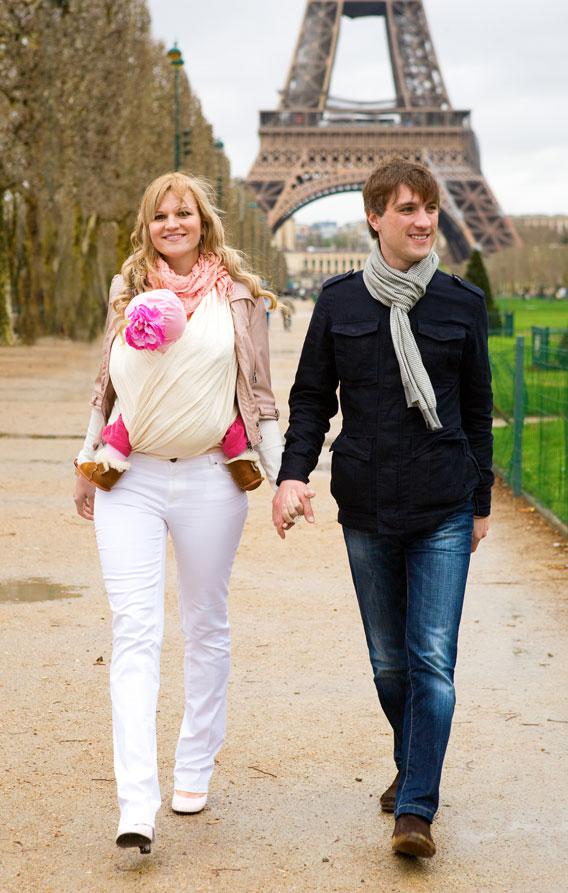Dear Rachael,
You’re right, we will have to wait for 10 years to know if “Bean’s” Franco-American upbringing was effective. I don’t know any American teenagers but, in a way, they remain role models for French teenagers. Our youth is all about consuming American culture. My third daughter, who is 11, loves Glee. She and her older sister swear by Abercrombie & Fitch. They all guzzle Coke and don’t care one bit about organic-and-fair-trade hearts of palm.
I’m not sure what effect this parenting will have on the love life and family life of Druckerman’s children once they grow up. As you may know, the divorce rate in Paris is the highest in all of France. But I believe this is due more to individual inspirations and the hardship of living in a big city than to our parenting. This shows that not only has Druckerman forgotten about the dads, she also ignores the rising phenomenon of single-parent families in France.
Should mothers handle authority now that French fathers are supposedly neglecting it? Why not? A fair distribution of the roles allows for both firmness and softness in a couple. But I believe that parents, especially when they have children later in life, don’t want to discipline their children at all.
They do everything to keep their child from having difficulties, to keep them in a cocoon. Of course, day care and school will give children a bit of autonomy and socialize them. But at what price! On the first day of school, I remember seeing a crying woman holding her child against her (and he was crying too, of course). Problem is, they cried together just like that for three or four months! And the dad would stand next to them, visibly clueless. Where was the “mysteriously calm air of the French mothers” Druckerman describes in her book then?
Another thing the book doesn’t touch on (maybe the next one will?) is the question of authority at school. The professor used to be a sacred figure, but not any more. Teachers are badly paid and are squeezed between parents who want their children to have Einstein’s brain and Van Gogh’s ear. The result often is French children who can get away with almost anything.
It’s not all doom and gloom. As Druckerman explains well, crèche (government-run day care) is an efficient tool of socialization. But, as in big American cities, there’s a striking shortage of room in day care. Druckerman actually talks about how difficult it was to get a spot in a crèche, and how other parents congratulated her when she managed it. Two thoughts: Crèche also means three or four days of strike a year, and doors slamming in your face when your child is sick, so you’d better have a plan B. Also, seeing as Druckerman works from home, I find it quite scandalous that she managed to secure a spot at day care when other parents who need the service more, don’t.
Without realizing it, she highlighted one of the problems of the so-called egalitarian French system, which she might discover when her children enter junior high school. That’s when Parisian bobos who say they love Republican egalitarianism try by any means available to avoid schools with a bad reputation.
I think you’re right about things getting easier when you have more children as you grow with them, learning to be less anxious. One of my friends told me that for her first child, she and her husband used to boil then sterilize mineral water for the feeding bottles. “By the second one, we boiled mineral water, and by the third we used hot tap water.” Their three children are all perfectly healthy.
Same goes for sleep. For my first child I lived through nervous nights, with a baby monitor on my bedside table (the media was talking a lot about sudden infant death syndrome back then). When my last child was born, I have to admit I didn’t even think about it. Today, the four of them sleep well and are more eager to eat sushi or pizza than they want to snack on typically French food. When I ask them to do something, I often have to repeat myself two or three times before they do it. Despite their French parenting, I think they’ve become well, normal.
Bien à toi,
Jean-Marc
Translated by Cécile Dehesdin.
